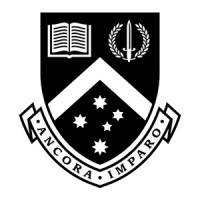Loading...

PhD Scholarship – Neonatal brain injury and neurodevelopmental follow-up
Monash University
Department of Paediatrics, Monash University and Monash Newborn, Monash Children’s Hospital
Dates
- Opening Date: Not Available
- Closing Date: 17-Nov-2024
Location
- Department of Paediatrics, Monash University and Monash Newborn, Monash Children’s Hospital
Salary
- The successful applicant will receive a tax-free stipend, at the current value of $35,013 per annum 2024 full-time rate, as per the Monash Research Training Program (RTP) Stipend.
Responsibilities
- Utilise state-of-the-art multi-channel near infrared spectroscopy (NIRS) to assess the functional brain response of infants born preterm in long-term follow-up.
- Detect socio-cognitive disorders early in preterm infants using social-visual stimuli (social videos of people interactions).
- Focus on correlations between neurovascular physiology, neuroimaging, and neurodevelopmental assessments.
- Involve in clinical follow-up of preterm infants and assess their neurovascular physiology during infancy.
- Potential involvement in experimental/animal studies of neurovascular research.
Requirements
- Background/training in clinical neonatology or follow-up of high-risk infants.
- Fulfil the Monash University minimum requirements for admission to a PhD.
Benefits
- Tax-free stipend of $35,013 per annum for full-time study.
- Opportunity to be part of a multidisciplinary cohort of clinicians and researchers.
- Involvement in important research work at Monash Newborn and the Ritchie Centre.
Notes
- COVID 19 vaccination is recommended for all persons attending a Monash University location.
- Staff located within a healthcare setting and students on placement in a healthcare setting must comply with the COVID-19 vaccination direction of the host organisation.